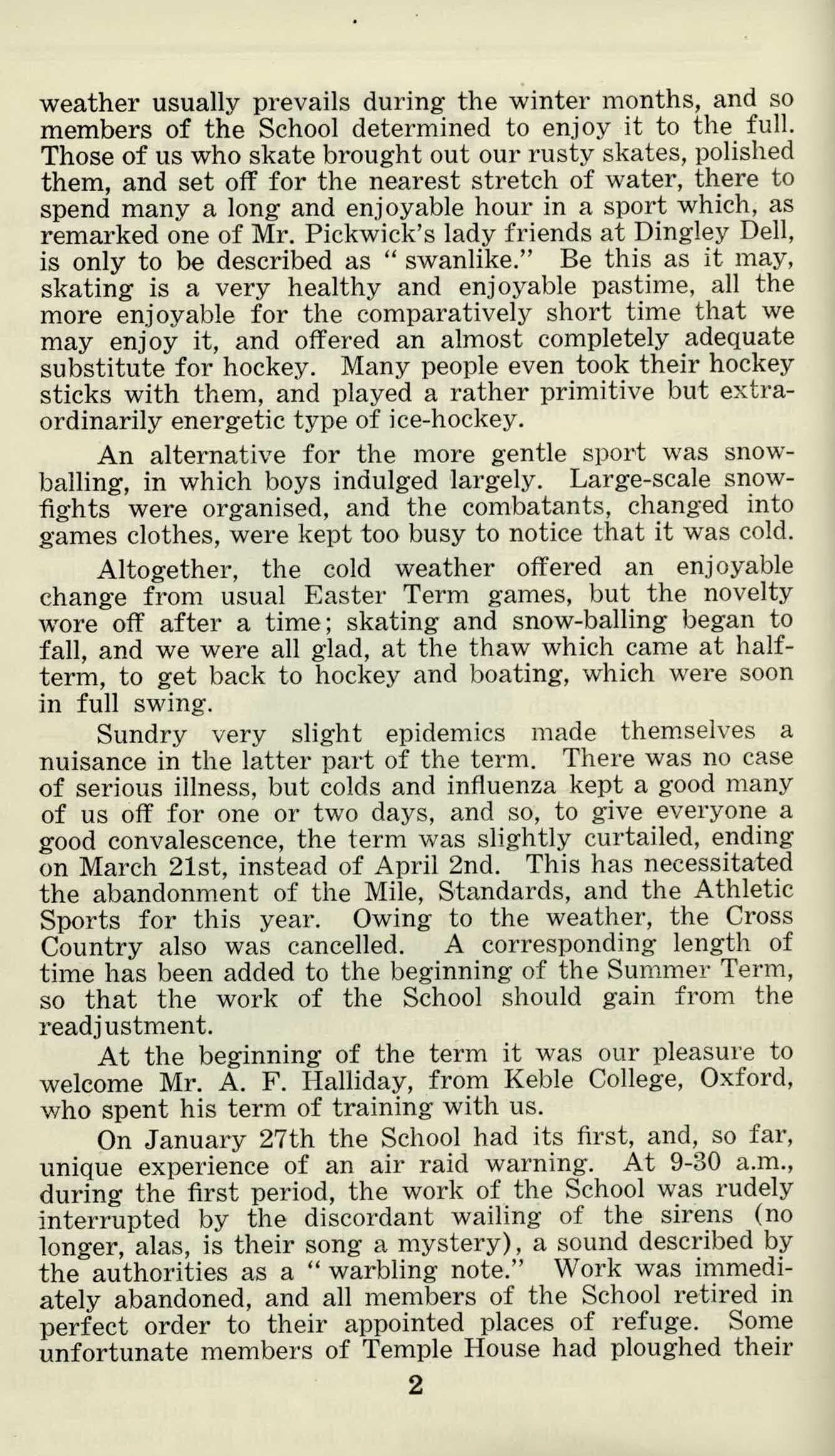
3 minute read
Editorial
from April 1940
by StPetersYork
THE LATE FLYING OFFICER J. R. HOLLINGTON.
It was with deep regret that we announced the death of John Hollington in the last " Peterite." It occurred during a raid over Germany, in which he was taking part, last December.
The School was sad to hear of his death, but proud to know he had given his life for his country. When we learned, last term, that Hollington had been mentioned in despatches
Photo] J. R. HOLLINGTON.
(Speed
for gallantry and devotion to duty in the execution of air operations, we were more than proud. His bravery will set a shining example to many of us.
J. R. Hollington, during his short period at the School, in Temple House, from 1933 to 1935, made many friends. He played for the 2nd XV in 1934, and for the 1st XV in 1935, when he gained his School Rugby Football colours. During 1935 Hollington became a House Monitor.
Soon after he left, Hollington joined the R.A.F., where he remained until his sad but glorious death.
weather usually prevails during the winter months, and so members of the School determined to enjoy it to the full. Those of us who skate brought out our rusty skates, polished them, and set off for the nearest stretch of water, there to spend many a long and enjoyable hour in a sport which, as remarked one of Mr. Pickwick's lady friends at Dingley Dell, is only to be described as " swanlike." Be this as it may, skating is a very healthy and enjoyable pastime, all the more enjoyable for the comparatively short time that we may enjoy it, and offered an almost completely adequate substitute for hockey. Many people even took their hockey sticks with them, and played a rather primitive but extraordinarily energetic type of ice-hockey.
An alternative for the more gentle sport was snowballing, in which boys indulged largely. Large-scale snowfights were organised, and the combatants, changed into games clothes, were kept too busy to notice that it was cold.
Altogether, the cold weather offered an enjoyable change from usual Easter Term games, but the novelty wore off after a time; skating and snow-balling began to fall, and we were all glad, at the thaw which came at halfterm, to get back to hockey and boating, which were soon in full swing.
Sundry very slight epidemics made themselves a nuisance in the latter part of the term. There was no case of serious illness, but colds and influenza kept a good many of us off for one or two days, and so, to give everyone a good convalescence, the term was slightly curtailed, ending on March 21st, instead of April 2nd. This has necessitated the abandonment of the Mile, Standards, and the Athletic Sports for this year. Owing to the weather, the Cross Country also was cancelled. A corresponding length of time has been added to the beginning of the Summer Term, so that the work of the School should gain from the readjustment.
At the beginning of the term it was our pleasure to welcome Mr. A. F. Halliday, from Keble College, Oxford, who spent his term of training with us.
On January 27th the School had its first, and, so far, unique experience of an air raid warning. At 9-30 a.m., during the first period, the work of the School was rudely interrupted by the discordant wailing of the sirens (no longer, alas, is their song a mystery), a sound described by the authorities as a " warbling note." Work was immediately abandoned, and all members of the School retired in perfect order to their appointed places of refuge. Some unfortunate members of Temple House had ploughed their
2











